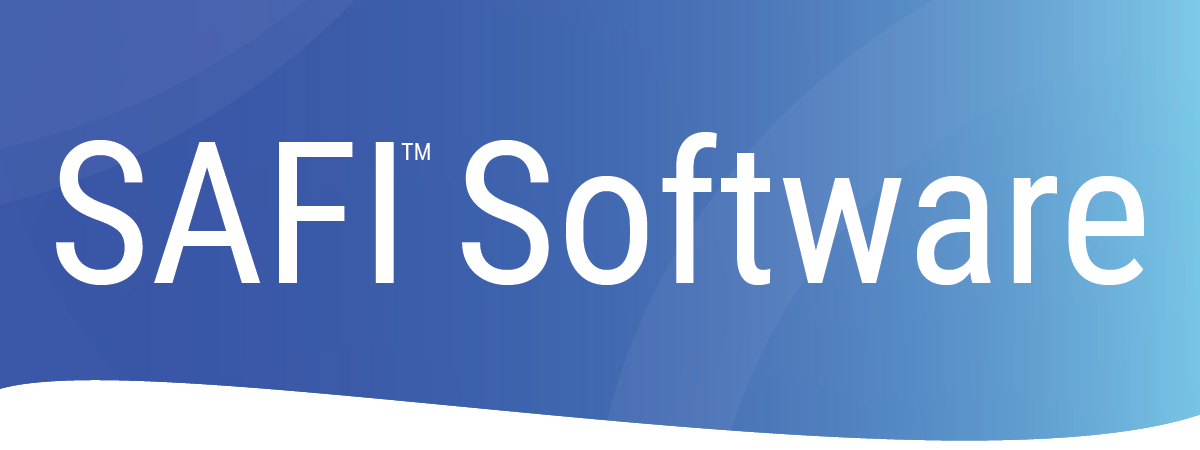STRUCTURAL ANALYSIS
Punching Shear Analysis
The punching shear analysis is directly linked to any joints that has been defined as a slab support of type column in the concrete tab of a joint properties.
Animation of the analysis results
The SAFI software allows users to animate results from different types of analysis.
Catenary Cables
In the interface of SAFI, users can create a catenary cable by associating a cable type section to a member.
Sections properties according to the straight axes
It is possible to see the section properties on the straight axes by clicking on the Additional Properties button.
Torsion and Warping
Restrained warping for the torsion of thin-wall open sections is not included in most commonly used frame analysis programs.
Built-up Sections
The program allows defining built-up sections whose properties are calculated by the means of a finite element model.
Seismic Analysis
In SAFI, three approaches are available to obtain the maximum displacements and forces of a structure subjected to an earthquake.
Spatial Objects
Spatial objects are used to model non structural secondary elements attached to the structure. These elements add no stiffness to the existing model.
Variable Inertia
The variable sections are sections for which the dimensions vary according to the position on the physical member.
Line of Integration
The integration line command allows associating a group of plates and/or members to a reference axis system called an integration line.
Stress Analysis
It is possible to obtain the stress distribution on the section at a specific point along a member using the Advanced Section Stress Analysis command.
Diaphragm Analysis
When a diaphragm is activated, the program creates a finite elements mesh in the plane of the surface.
End Releases
The SAFI software allows specifying member end releases on all six degrees of freedom.
Advanced Solver
SAFI features a solver based on sparse matrix storage (compressed storage) in order to reduce the analysis time and memory usage of large models analysis.
Notional Loads
Real structures contain defects, zones of partial yielding and residual stresses that are not taken into account in the numerical models.
GSE SOFTWARE
Fire resistance of wood elements
Enhancing productivity, the GSE software calculates the resistance limit states under fire conditions for large cross-section wood elements.
Continuous tie down systems in wood shearwalls
Enhancing productivity, the GSE software considers continuous tie down systems and their effects on the shearwall properties.
Cold Formed Steel Design
Design cold formed steel members based on the North American specifications CSA S136-16 & AISI S100-16.
Live load reduction
The software computes the live load reduction factor (LLRF) that will reduce the effective axial compression force in columns.
Slab on grade
The soil-structure interaction is an important component in the design of a building or any structure in general. In order to improve the productivity of SAFI users, an automatic slab on grade generation function has been added.
Slab Engineering
The concrete slab design assistant allows the user to quickly generate the design strips of a concrete slab.
Deflection Calculations of Reinforced Concrete Slabs
Concrete buildings are widely used in the construction industry. In such structures, slabs are key structural elements resisting the gravity and live loads of each floor.
Slab Engineering : Contour loads
This feature allows users to quickly define various types of loads on all the plate elements present in the selected perimeters.
Wood Light Framing
Modeling a light framing wall or a shearwall is possible with the wall creation tools.
Engineered Wood
Compression, tension, bending, compression bending, tension-bending, shear, bearing, deflections and slenderness.
Vibration of sawn lumber joists
To improve the productivity of GSE users, the floor joists are automatically generated inside the truss load surfaces.
HSE SOFTWARE
Fatigue Limit State
A step has been added into the highway sign wizard so all fatigue parameters for the structure can be set efficiently.
Highway Sign Structures
It is possible to model 4 types of panels: Simple panels, Reinforced panels, Variable Message Signs (VMS) and Walkways.
PSE SOFTWARE
Wind Loads
The Petroleum Structural Engineering software automates wind loads applied to members based on the projected area, projected pressures or velocity components approaches.
IMPORT
IFC Import
The integration of IFC in SAFI enables importation of models from a large number of architectural and structural software.
